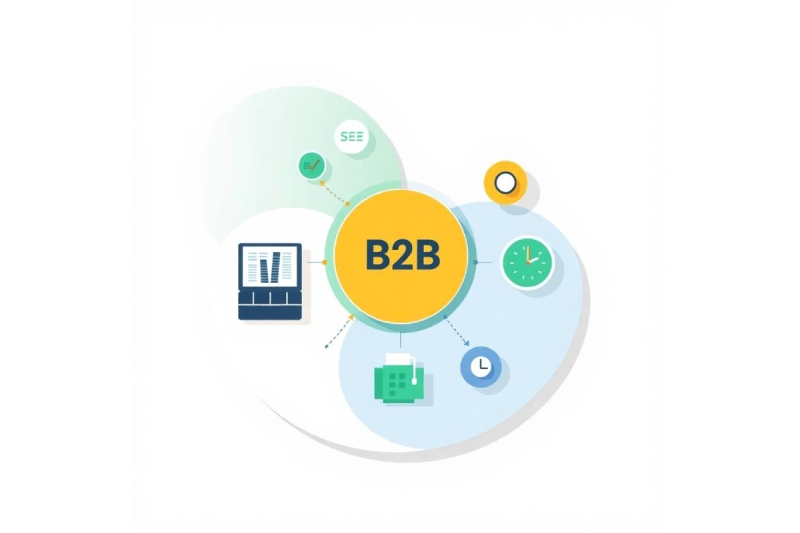Discover how multi-channel funnels integrate diverse platforms with automation tools for efficient marketing. Learn strategies for modern customer engagement.

In today’s competitive marketplace, relying on a single marketing channel is no longer sufficient. Modern consumers interact with brands across various platforms, from email to social media and messaging apps. Multi-channel funnels have emerged as a solution for creating a seamless, integrated customer journey. These funnels guide potential customers through multiple touchpoints, ensuring consistent engagement and higher conversions.
By combining automation for marketing with tools like RCS messaging, businesses can streamline communications and improve efficiency. This article explores how multi-channel funnels can be implemented for maximum impact in the business world.
The Importance of Multi-Channel Funnels
A multi-channel funnel allows businesses to connect with customers at multiple stages of their journey using various platforms. Unlike traditional funnels, which focus on a single channel, these funnels leverage multiple touchpoints to create a cohesive experience.
Key Benefits:
- Improved Customer Reach: Engages prospects across diverse platforms, increasing visibility.
- Enhanced Personalisation: Offers tailored experiences based on customer behaviour.
- Better Data Insights: Tracks interactions across channels to refine strategies.
Multi-channel funnels ensure that customers remain engaged, regardless of their preferred communication method.
Essential Components of Multi-Channel Funnels
1. Integrated Platforms
Effective multi-channel funnels connect diverse platforms, such as:
- Social Media: Builds awareness and drives traffic.
- Email Marketing: Nurtures leads through personalised messages.
- Messaging Apps: Facilitates real-time interactions using tools like WhatsApp or RCS messaging.
Integration ensures that customer data is unified, allowing for consistent messaging across all touchpoints.
2. Marketing Automation
Automation for marketing is critical in managing the complexities of multi-channel funnels. Automated tools streamline repetitive tasks, saving time and reducing errors.
Applications of Marketing Automation:
- Scheduling posts on social media platforms.
- Sending personalised drip email campaigns.
- Triggering follow-ups based on user actions.
Automation allows businesses to maintain timely, relevant communication, even across multiple channels.
3. Advanced Analytics
Multi-channel funnels rely on data to measure performance and optimise strategies. Analytics tools track user behaviour, providing insights into:
- Conversion rates across different channels.
- Customer preferences and purchasing habits.
- The effectiveness of individual marketing campaigns.
These insights enable businesses to focus on the most impactful channels and refine their approach.
How Multi-Channel Funnels Work
Awareness Stage
At the top of the funnel, awareness is generated through channels such as social media ads, blog posts, or influencer marketing. The goal is to attract potential customers and introduce them to the brand.
- Platforms like Facebook and Instagram help capture attention.
- Blogs and SEO content drive organic traffic.
- RCS messaging can share promotional content with interactive elements.
Consideration Stage
Once awareness is established, potential customers enter the consideration phase. During this stage:
- Email campaigns provide detailed information about products or services.
- WhatsApp chatbots answer customer queries in real time.
- Retargeting ads keep the brand top-of-mind for users who have already engaged.
By addressing customer concerns and showcasing value, businesses can guide leads further down the funnel.
Decision Stage
In the decision phase, customers are encouraged to take action, such as making a purchase or signing up for a service. Strategies include:
- Sending limited-time offers via RCS messaging.
- Offering testimonials or case studies through drip email campaigns.
- Using personalised WhatsApp messages to close deals.
Multi-channel funnels ensure that customers receive the right message at the right time, increasing the likelihood of conversions.
Tips for Building Effective Multi-Channel Funnels
Align Messaging Across Channels
Consistency is key when engaging with customers across multiple platforms. Ensure that your brand’s tone, visuals, and messaging remain uniform, whether communicating via email, social media, or messaging apps.
Use Automation Strategically
Leverage automation for marketing to manage multiple channels efficiently. Tools can schedule campaigns, segment audiences, and track performance, allowing teams to focus on strategy rather than execution.
Incorporate RCS Messaging
RCS messaging offers a modern way to engage customers, with features such as:
- Rich media, including images and videos.
- Interactive buttons for quick responses or purchases.
- Real-time notifications to drive urgency.
To understand how to send RCS messages effectively, businesses should explore integration options with their CRM or marketing tools.
Overcoming Challenges
Challenge: Managing Multiple Channels
Handling multiple channels can be overwhelming without the right tools. Marketing automation platforms simplify this process by centralising campaign management.
Challenge: Measuring ROI
Tracking the return on investment across various platforms may seem daunting. Advanced analytics tools provide comprehensive reports, highlighting the performance of individual channels and campaigns.
Challenge: Maintaining Personalisation
Despite automation, maintaining a personal touch is essential. Segmentation and dynamic content ensure that messages remain relevant and resonate with the audience.
Case Study: A SaaS Company’s Multi-Channel Success
A SaaS company successfully implemented a multi-channel funnel strategy to boost customer acquisition.
Steps Taken:
- Used LinkedIn ads to generate awareness among decision-makers.
- Engaged leads with a drip email campaign providing product insights.
- Sent personalised RCS messages offering free trials.
Results:
- A 40% increase in lead generation.
- A 25% boost in trial sign-ups within three months.
- Enhanced customer engagement across all platforms.
This example demonstrates how an integrated, multi-channel approach can deliver significant business results.
Future Trends in Multi-Channel Funnels
With advancements in technology, multi-channel funnels are set to become even more sophisticated. Emerging trends include:
- Greater integration of AI for personalised experiences.
- Increased use of messaging apps like WhatsApp for real-time communication.
- Enhanced analytics capabilities for deeper insights into customer behaviour.
By staying ahead of these trends, businesses can ensure their multi-channel strategies remain effective.
Multi-channel funnels are vital for businesses aiming to engage modern consumers effectively. By integrating diverse platforms such as email, social media, and messaging apps, these funnels create a seamless customer journey. Automation for marketing and tools like RCS messaging play a pivotal role in streamlining operations and delivering personalised experiences.
To succeed, businesses should focus on aligning messaging, leveraging automation, and analysing performance metrics. Overcoming challenges like platform management and ROI measurement ensures that multi-channel funnels deliver maximum value.
As consumer behaviours evolve, adopting a dynamic and integrated approach will enable businesses to stay competitive and achieve sustainable growth.



